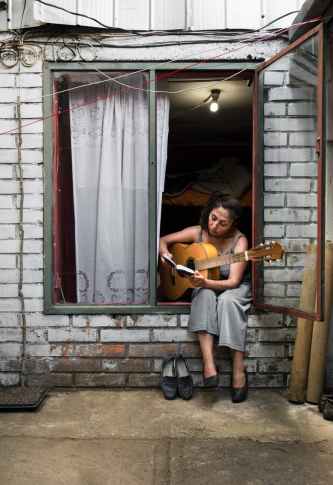By: Sharoon Javed
Ever since the decolonization of the subcontinent, both India and Pakistan had acquired certain traits from their colonial masters. In India, a term of ‘untouchables’ would exist even before the colonization. However, Pakistan, after its creation also inherited such terms. One of these derogatory and disrespectful words is “Choorha”, which is rampant in Pakistani society. This word ‘Choorha’ is used for those who work as Janitors or sanitary workers. Undoubtedly, this term personifies the utter hatred, disrespect, and the colonial mindset of Pakistani society: especially of the one in the majority. Mostly, Christians and Hindus are deployed on the tasks of sanitation-related work in Pakistan. So, calling them ‘Choorha’ is a slap to their self-esteem and also it deteriorates their passion to earn living through legitimate means. Currently, the socio-economic position of sanitary workers in Pakistan is dismal and their miseries are doubled when they are discriminated based on the work they do. Similarly, due to extreme dearth or complete unavailability of protective gears, a multitude of sanitary workers choke to death while working in manholes. Therefore, it is the need of the hour that a widespread awareness must spread among masses, so that people may start deconstructing their beliefs about sanitary labor in Pakistan. It is equally important for the fulfillment of sustainable development goals2030 and the lives of those engaged in this work. All in all it can be articulated that sweepers are the superheroes, who dive into manholes, clean our filth, and keep our environment clean. How can we not give respect to that segment of society to whom we all depend?

There is a clear stratification of society on the basis of the class system, which only bites the lower segment of society. Therefore, some are ‘Chaudharies’ (The Masters), while the others are ‘Choorhas’ (The Untouchables) in this social landscape. On the other hand, the socio-economic plight of sanitary workers cannot be neglected, which is in dire straits. Their lives are unpromising and unpredictable because they work in poor and unhygienic environment without wearing safety kits.
Moreover, in many institutions in Pakistan, only Christian (Minority) staff are being recruited for sanitation purpose that shows a thick stigmatization for this very job. In the metropolis of Punjab alone, around 80% of sanitary workers belong to the Christian community. Also, this stigmatization gets worse when the ‘theory of untouchables’ is being practically implemented. Irfan Masih is one of the victims of such stigmatization who could not prove that he also deserved to stay alive. He was associated with sanitation work and was unclogging a sewer, when a toxic gas from the sewer attacked him and he went faint. Battling with the evil of death, Irfan was brought to the local hospital in Sindh, Pakistan, but the doctor refused to treat (touch) him because he considered Irfan as unclean. And, with this dilemma, Irfan gave his life questioning the society that “hadn’t he the fair right to live?”
Additionally, when the significance of sweepers is assessed, it is pertinent that they appear to be the backbone of a clean, healthy, and hygienic society. Sanitation workers are an invisible workforce that is active day and night to keep the sanitation system sustained. They are the basic players who strive and work for the water safety and are the front-liners during the outbreak of a pandemic. However, their safety, dignity, and social security are pre-requisite to fulfill the Sustainable Development Goals of 2030, which include clean water and sanitation for all, and the acquisition of decent work and economic growth.
However, among the thundering clouds of darkness, there is always a twinkling star, which remains a little light of hope. Henceforth, there are individuals parallel to this gloomy world, who are burning their midnight oil to de-stigmatize this menace of hatred and disrespect. ‘Sweepers are Superheroes’ is one of the platforms, which is playing its instrumental role to eradicate this shaming for sweepers and also is raising awareness among those who think that sweepers are untouchables.
In the same manner, the government must inculcate the true spirit of inclusivity and respect for the weaker segment of society in the curricula. When children are taught at school about the dignity of this work and other such works, only then they would be able to give respect to others. In addition to that, the Government can introduce cleaning campaigns at schools just like Japan Cleaning Tradition, where students are supposed to clean their schools at the end of their classes. This cleaning culture would teach countries budding youth that cleaning the environment is not a disrespectful or inferior act.
Similarly, there is a pressing need that the government must allocate a separate budget for the safety and security of sanitary workers and must provide them extra monetary benefits and health coverage. Moreover, the government is in dire need to implement the International Labor Organization’s Agenda, which seeks to promote a conducive, safe, and respectful environment for workers from all across the globe. In the same manner, there must be a compulsion of every sanitary worker to wear a protective kit provided by the department, because their lives are also important just like other human beings.
All in all, it is articulated that sweepers are an invisible workforce that works the hardest but their volatile socioeconomic condition and a widespread hatred of society tighten the rope around their necks. They work in poor hygiene conditions, where their lives are always at stake. However, in Pakistan Christians and Hindus are pushed to do this job because of the stereotyping of sanitary related work with specific casts system. Therefore, it is the need of time that a widespread responsiveness must spread among masses, so that people may start decomposing their rusted beliefs about sanitary workers. Only then would there be a fulfillment of global agendas of human rights and sustainable development. Conclusively, it is pertinent that nations reach to the zenith of glory who pay homage to their weaker segment, who give respect to their workers, who take care of the delivery of human rights to everyone. Similarly, Pakistani society needs to follow the footsteps of those nations who are the torchbearers of human rights and must award dignity to those who deserve it. Therefore Martin Luther King Jr. asserts that:
“All labor that uplifts humanity has dignity and importance and should be undertaken with painstaking excellence.”


